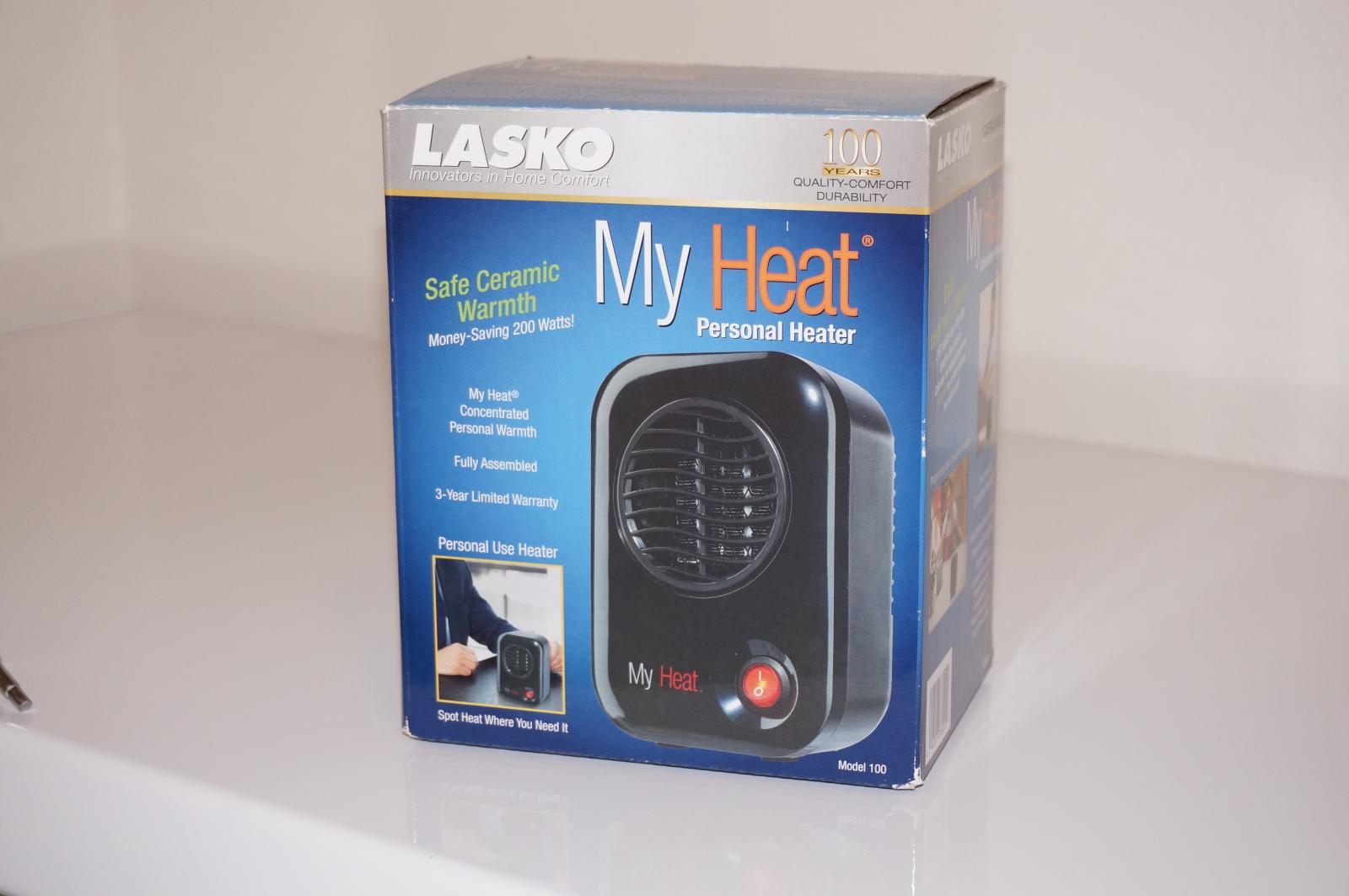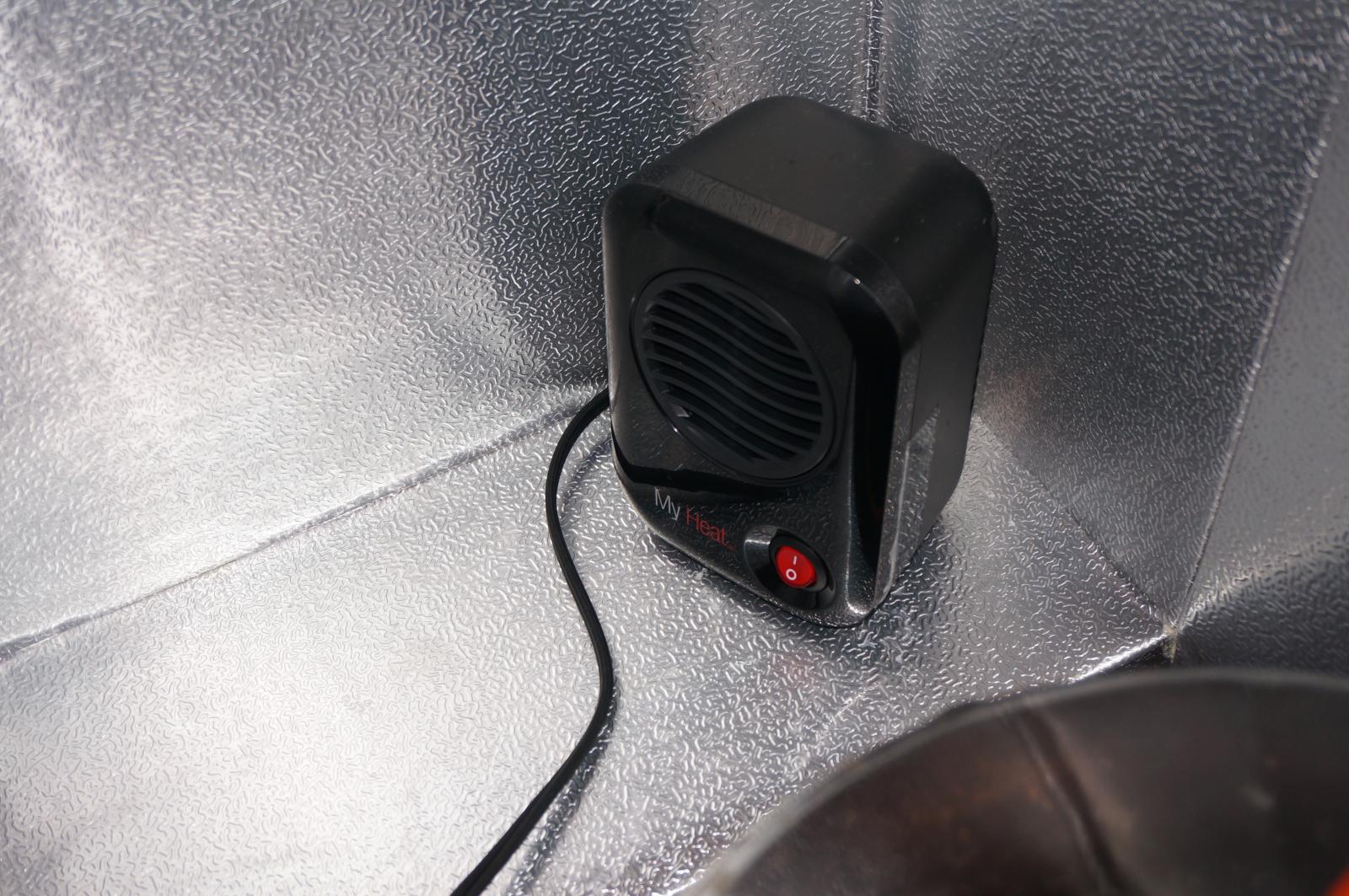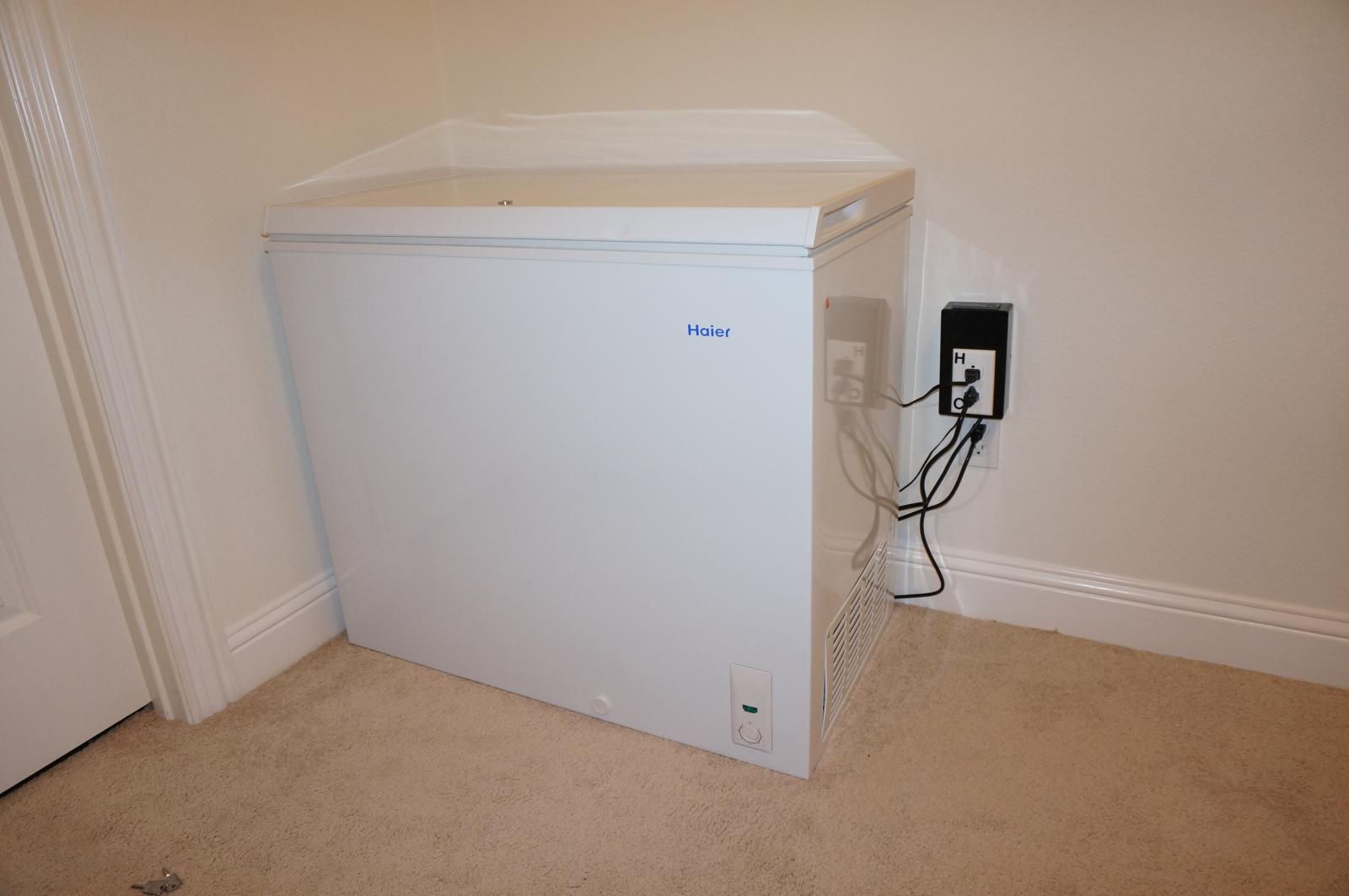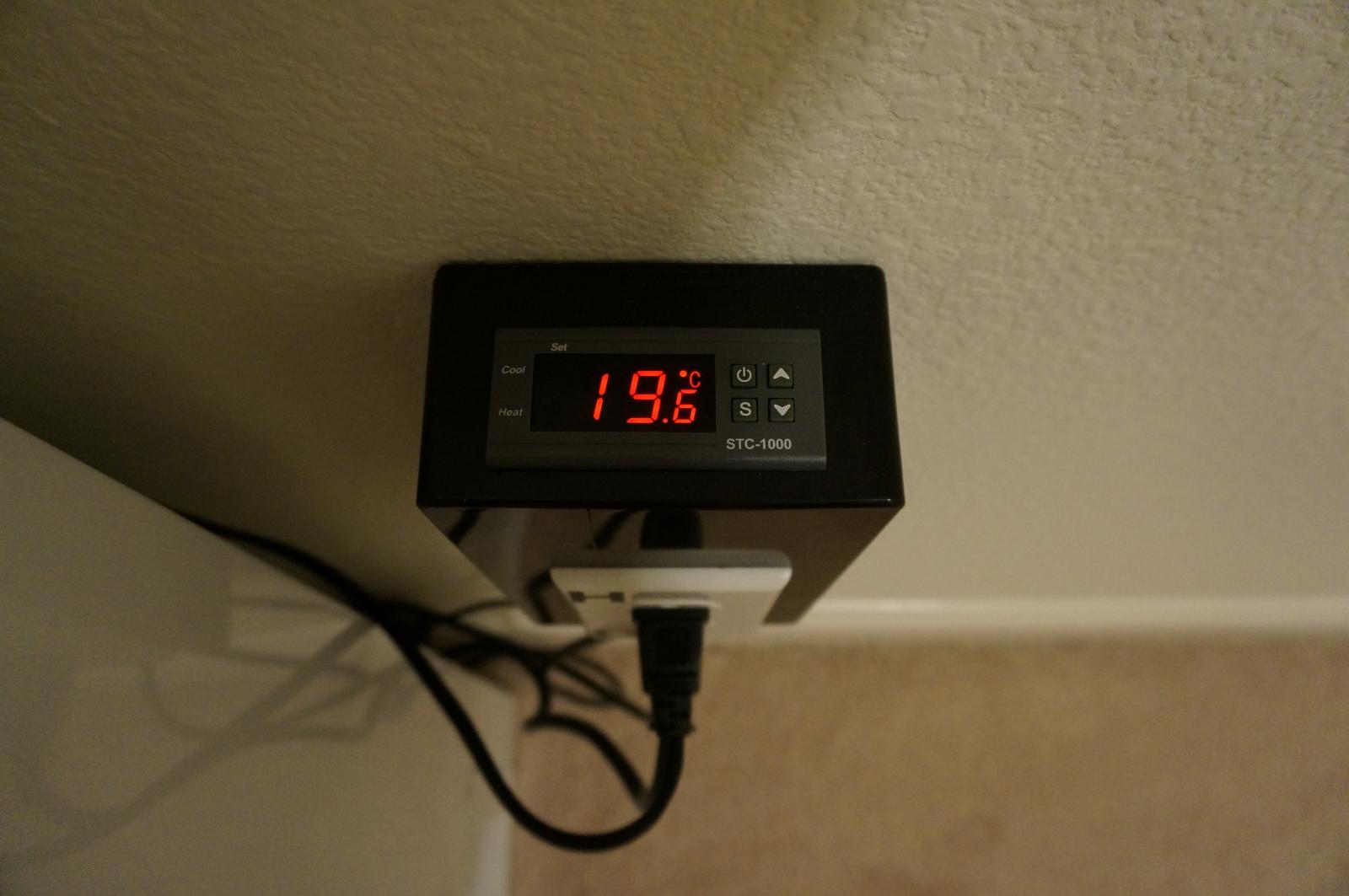I second this statement. I have been using this heater for a year. Works great
greyghost sold me on them and mines a year old too..


I second this statement. I have been using this heater for a year. Works great

I taped a 40 watt fermwrap to the back wall of my fermentation chamber. Been working perfectly so far, and nothing gets so hot that it would cause worry. Air circulation is handled by the freezer's built-in fan that I have wired to run constantly.
I use the top of a food dehydrator, elevate to get air flow, connect to temp controller. Sits inside ferm box, no problems using 2+ years









![Craft A Brew - Safale S-04 Dry Yeast - Fermentis - English Ale Dry Yeast - For English and American Ales and Hard Apple Ciders - Ingredients for Home Brewing - Beer Making Supplies - [1 Pack]](https://m.media-amazon.com/images/I/41fVGNh6JfL._SL500_.jpg)


Yes, ETL certified but you are using it outside of what it was certified for. That's like saying that since it's ETL certified, you can use it outside in the rain, I mean, why not, it has overload protection.
You have no idea how many people I come across that do stuff in their homes and feel it's safe because "it works" even though it was never meant to be setup that way, electrical is the biggest one. Here is one example: They install a 15 amp rated outlet on a circuit that has a 20 amp or more breaker. Sure, it will supply electric to whatever is plugged in but when that device that's plugged into that 15 amp outlet starts pulling in more than the 15 amp plug is rated at, but less than what that circuit breaker is rated to trip at, guess what's happening to that little ole 15 amp outlet. Try explaining that to the insurance company.
Just because it works outside of what it was meant to be used as does NOT make it safe, so please stop telling people to "take a chill pill" when it comes to something that can be a serious fire hazard. There are a number of brewers who have had their garages/sheds or even worse, their homes, destroyed by fires from setting stuff like this up.
I don't see how using a small heater to heat a small space is beyond its intended use of heating a small space. Blindly telling people to DIY wire a light socket to a metal can is somehow safer. Is a light bulb in a tiny sealed can its intended use? I'll take my chances with a less expensive, tested, proven device thank you.
If you want o be that conservative, we shouldn't even have an electrical section on these forums. Everyone, get a second
job so you can afford Blichman gear. DIY electrical projects are going to burn your house down.
Plugging a <2A commercial product into an existing circuit is a far cry from ignorantly wiring wall outlets.
"I used one and had no problems."
Anecdotal evidence is a weak argument. Often it is okay on a forum like this, because if enough people provide it, it starts to indicate validity. It is useful to gauge, for example, whether HSA is a real problem. If 100 people tell me it's not a problem in their experience, then I start to believe it. But let's be careful suggesting that people can rely on anecdotal evidence when the risk is burning someone's house, or injuring or killing someone.
Ever done something very risky and got away with it? Driving under the influence, perhaps? Since you got away with it, do you now think there is no risk? Does it make sense to recommend that others take that risk?
I think there is a risk to these space heaters in a fermentation chamber, and there are better alternatives. If you decide to use a space heater, at least be aware of the risk, and try to place it so it won't start a fire when something goes wrong.
I think there is a risk to these space heaters in a fermentation chamber, and there are better alternatives. If you decide to use a space heater, at least be aware of the risk, and try to place it so it won't start a fire when something goes wrong.
I've installed thousands of 15A receptacles on 20A circuits and I'm licenced to do so.
So what alternative do you suggest? Something not plugged into an electrical outlet I hope. Space heater or glorified heating pad, makes no difference. I have had space heaters fail due to moisture but never a fire or meltdown. We should solve this problem.
So you need a 100 people with real world experience to maybe convince you that something is true, yet everybody is supposed to believe you simply because you've said that you *believe* there is a risk??? You've offered no evidence of a problem or experience of a problem. How does that make any sense? Help us all understand what the risks are, specifically, and the differences between one solution and the next.
You say when "the cheapo fan stops, the unit melts"??? You don't think that's what the thermal overload protection circuitry is for? Or are we talking perfect storm where everything fails? You don't think the ETL testing didn't evaluate how this thing specifically reacts in thermal overload conditions??? What do you think they do, turn it on and say *it works, ok, lets test next product"? Please people, use some common sense.
Where's the lab certifications for fermwraps and light bulbs in paint cans, inside bar fridges? I bet the thermal overload protection on those would be up to the labs' expectations.
I have a fermenation chamber today that is a mini fridge built out with plywood and insulation. Eventually, I'll move to a chest freezer for fermentation as the size of the other chamber is just too large for my needs these days.
I've read about ways to heat the ferm chamber and decided upon the space heater (this one). Then I started reading more and a thread that was started within the last day came up that concerned me. Is the space heater in a ferm chamber a bad idea now? The threads I read previously are old, 2010, 2011, 2012. Some did recommend the lightbulb in a can, but there was nothing swaying me one way or the other.
I just want it to be safe. I have a STC-1000 bought from Brews by Smith. I haven't hooked it up yet because I was waiting on the heater.
I realize this thread is slightly repetitive, but opinions seem to have changed over time and I'm wondering if that is due to safety issue or just finding a better way to heat a chamber.



